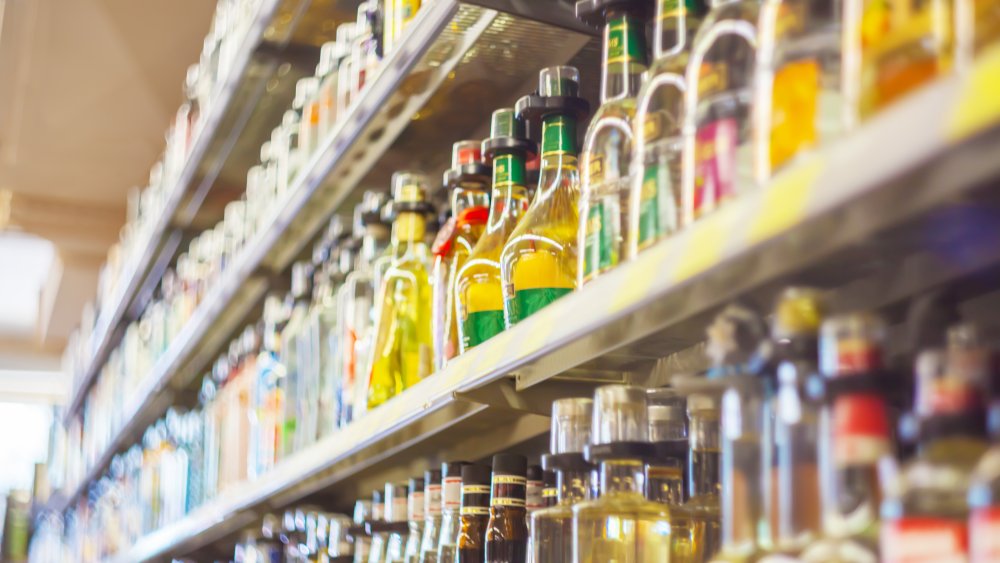The Real Reason The WHO Wants To Restrict Alcohol Sales
The World Health Organization (WHO) has spoken, and it wants you to reduce the amount of alcohol that you drink — or quit altogether. On April 14, spokespersons shared online their anti-alcohol guidance to encourage "...governments to enforce measures which limit alcohol consumption." One of these reasons cited for this advice is the belief in a dangerous myth circulating that high-strength alcohols (like shots or higher proof cocktails) can protect you against the virus that causes COVID-19. According to WHO experts, "The most important point to remember: In no way will consumption of alcohol protect you from COVID-19 or prevent you from being infected by it."
It's possible this myth was derived from the use of high-potency spirits to create DIY hand sanitizer, although the origin is not clear. Instead remember that just because something is useful for cleaning purposes, it does not necessarily mean that it can provide additional benefits when ingested.
But the WHO isn't finished providing reasons to abstain from alcohol.
Alcohol may trigger additional issues during quarantine
To be clear, the World Health leaders aren't exactly proponents of alcohol consumption on a good day. However, they warn that during pandemic era shelter in place situations, the consumption of beer, wine, or spirits may be more harmful than usual. "During the COVID-19 pandemic, we should really ask ourselves what risks we are taking in leaving people under lockdown in their homes with a substance that is harmful both in terms of their health and the effects of their behavior on others, including violence," said Carina Ferreira-Borges, Programme Manager, Alcohol and Illicit Drugs Programme, WHO/Europe.
Beyond simply not providing protection against virus transmission, alcohol can also weaken your immune system and make it more difficult to fight off infection of any kind. In addition, there are health risks when alcohol is associated with smoking, or when combined with prescription or herbal medications. But the risks don't stop with direct physical health and carry on to mental health and social welfare, too. High stress and close quarters have led WHO experts to conclude that alcohol may worsen issues at risk during this time including depression and domestic abuse. Adding alcohol to the mix has the potential to increase volatile behavior and risk-taking.
While the experts realize not everyone will quit drinking alcohol at this time, they strongly encourage consumers to limit the number of drinks they have and stay knowledgeable about how adding alcohol may affect your shelter health and happiness. In other words, please drink responsibly.

